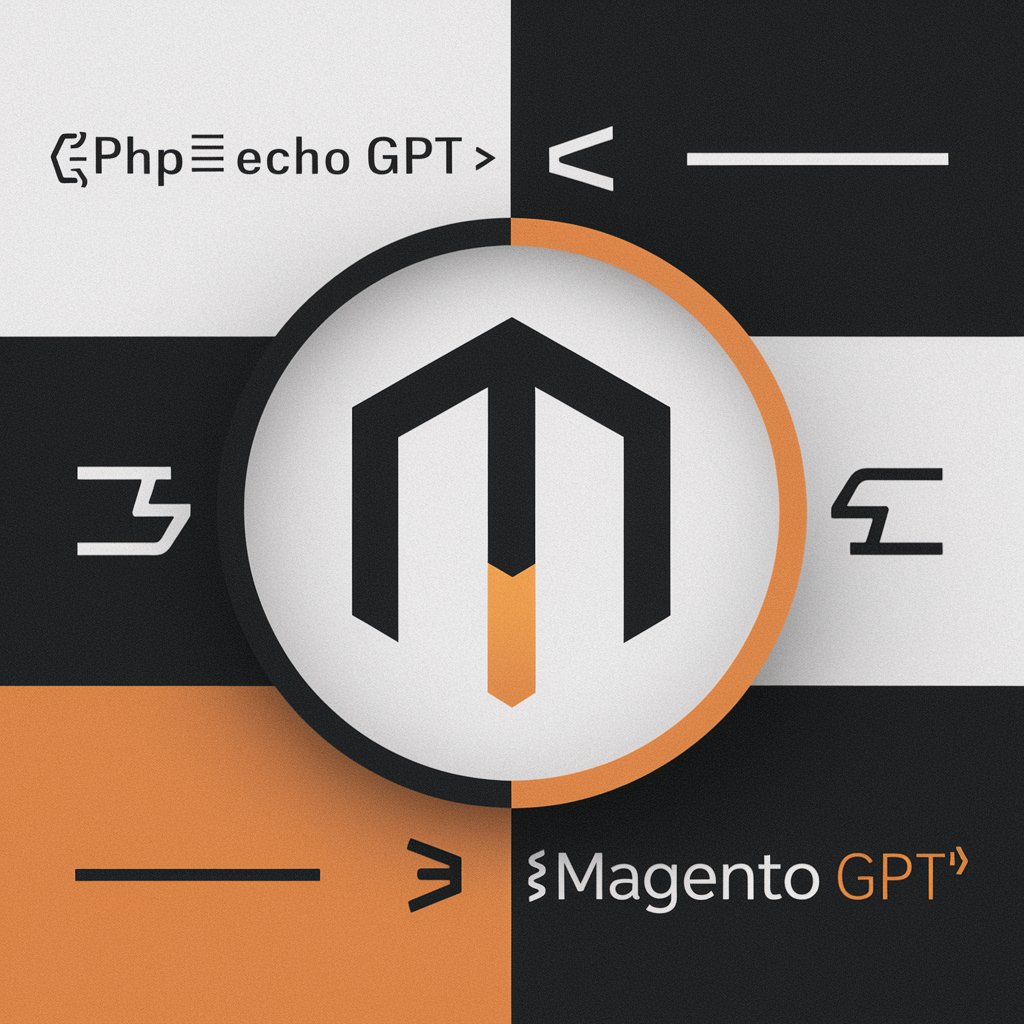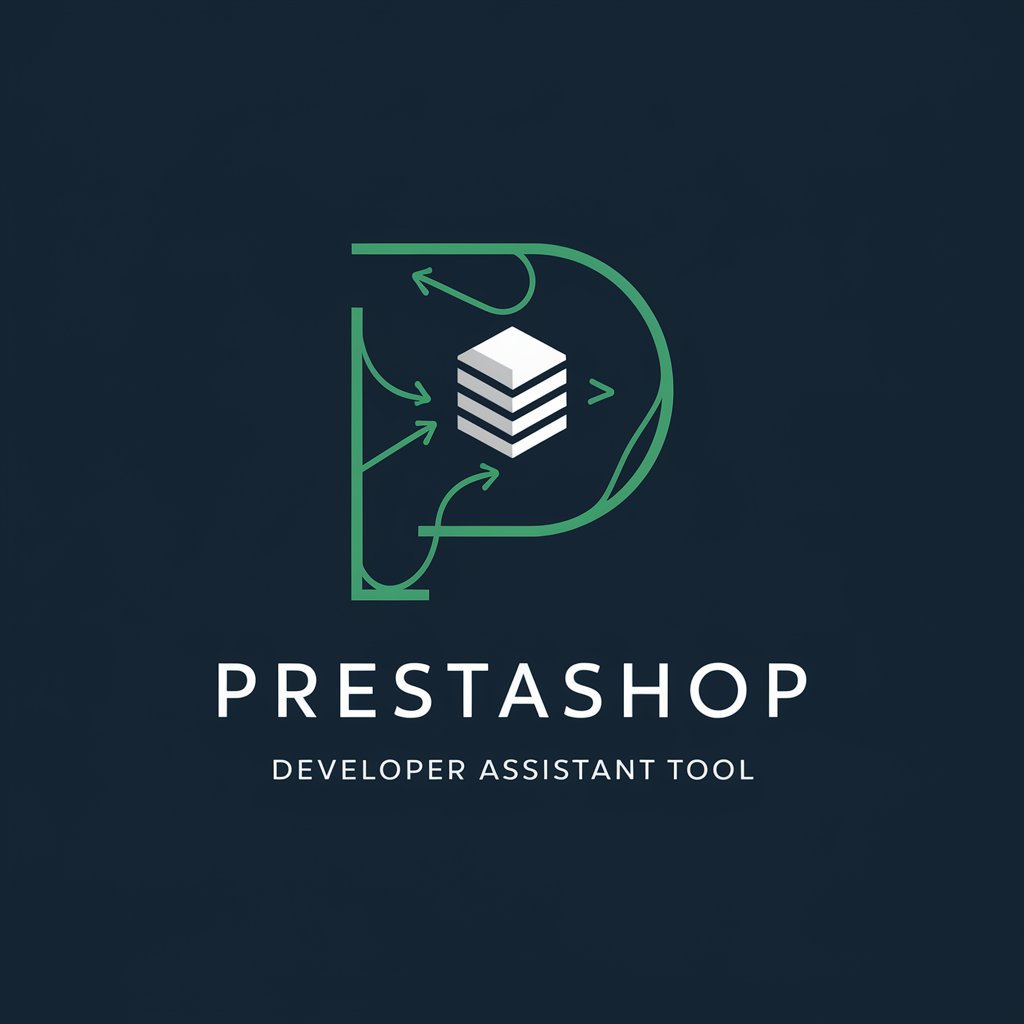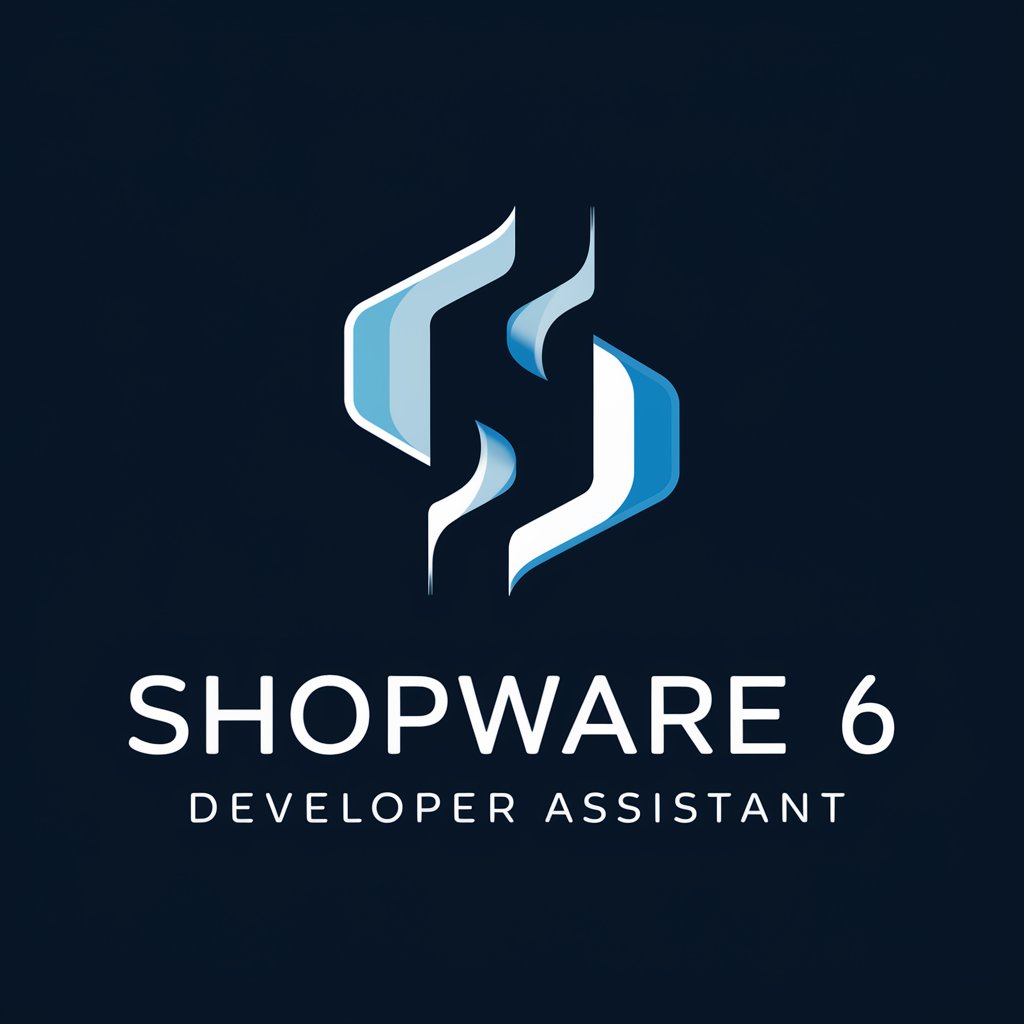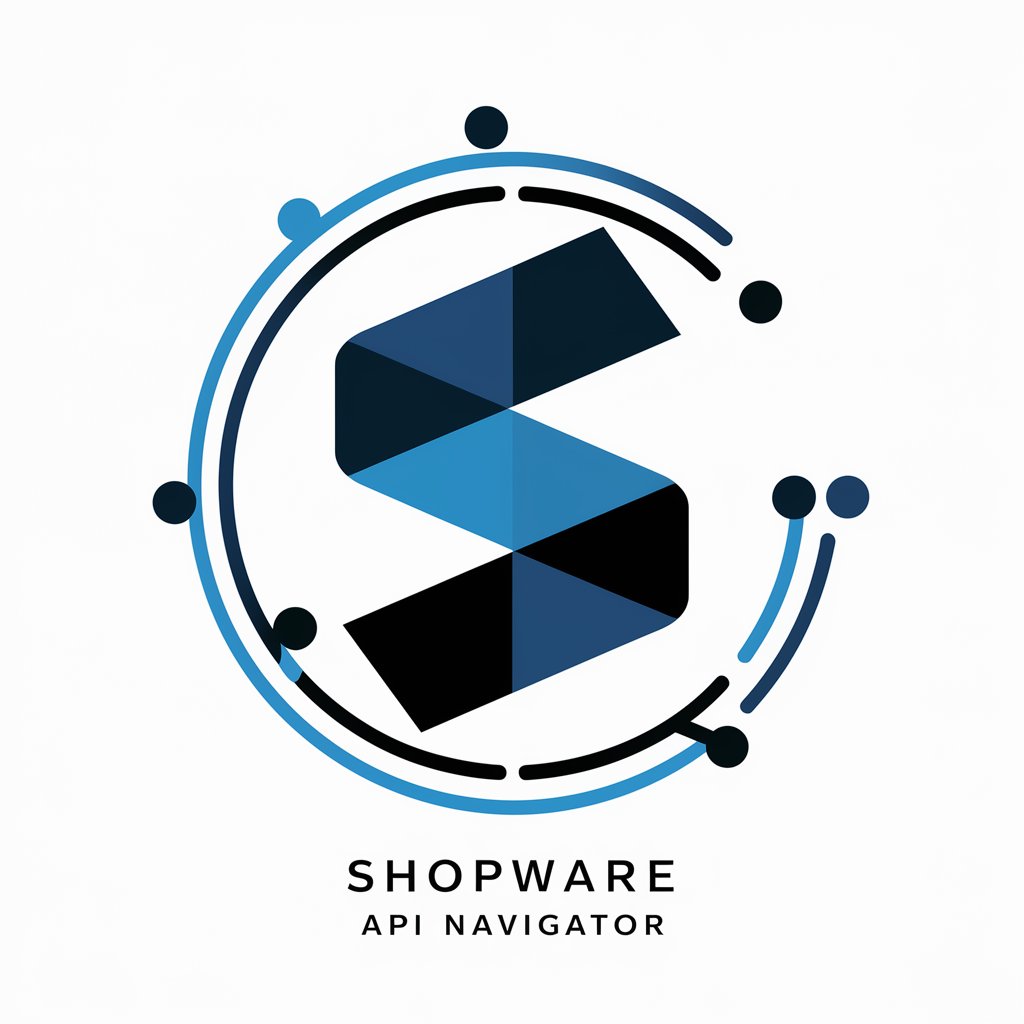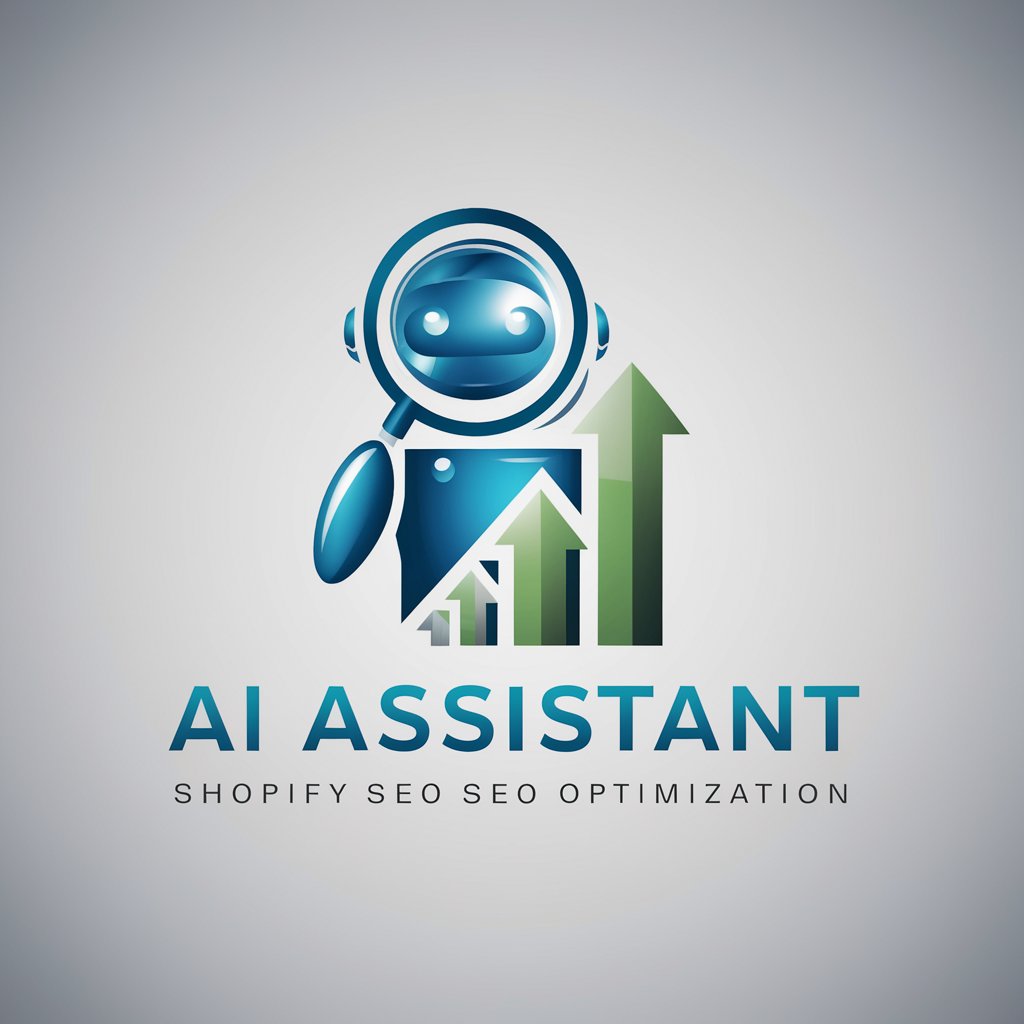
Shopware Minion - AI assistant for Shopware development

Hallo, bereit für Shopware 6 Unterstützung!
AI-powered assistant for Shopware solutions
How to create and use a Theme in Shopware 6?
How to use Subscriber in Shopware 6?
Override a JavaScript Plugin
-w if you want to search for your prompt on Web
Get Embed Code
Introduction to Shopware Minion
Shopware Minion is a specialized AI tool designed to assist developers, merchants, and technical support teams in working with Shopware 6, a leading e-commerce platform. Its primary focus is on helping users diagnose and resolve issues, optimize store performance, and implement best practices in areas such as plugin development, theme customization, and administration settings. Shopware Minion is tailored to provide deep insights into Shopware’s ecosystem, making it especially useful for those who need efficient problem-solving and guidance for advanced Shopware 6 configurations and development tasks. The tool can navigate through the official Shopware documentation, GitHub repositories, community forums, and relevant online resources to find solutions, examples, and best practices. It understands the technical aspects of Shopware's code base, particularly focusing on Symfony, Twig, and JavaScript, which are key technologies used in Shopware 6. For instance, if a developer encounters an issue while creating a custom plugin, Shopware Minion can guide them through the correct file structure, hook into the right events, or solve performance issues like slow queries. The goal of the tool is not just to offer generic advice but to provide actionable insights grounded in Shopware 6 best practices. Powered by ChatGPT-4o。

Core Functions of Shopware Minion
Error Diagnosis & Debugging
Example
A developer reports a 500 Internal Server Error while trying to access a custom Shopware plugin. Shopware Minion assists by guiding them through inspecting log files, identifying the specific error message, and suggesting debugging methods based on Shopware's core system structure.
Scenario
A Shopware developer is troubleshooting a malfunctioning plugin and cannot determine the root cause of an error. They input the error message into Shopware Minion, which identifies a missing dependency and suggests a fix, such as updating a YAML configuration or registering a service in the DI container.
Performance Optimization
Example
A merchant’s online store is experiencing slow loading times, particularly on product listing pages. Shopware Minion analyzes potential causes, such as slow database queries or improperly configured caching strategies, and provides optimization suggestions like indexing, enabling HTTP caching, or utilizing Redis for session handling.
Scenario
A store owner complains about slow page load times, particularly during peak traffic hours. Shopware Minion advises on optimizing server performance by using asynchronous processing for high-demand operations, implementing Varnish for caching, and reducing page bloat through selective loading of assets.
Plugin and Theme Development Guidance
Example
A developer is building a new payment gateway plugin. Shopware Minion provides examples of how to extend Shopware’s Payment Handler, which events to subscribe to, and how to properly register the plugin in Shopware's system.
Scenario
A developer new to Shopware plugin development needs to create a custom payment gateway. Shopware Minion explains how to set up the plugin structure, write a PaymentMethodHandler class, and link it with the administration interface to configure payment options.
Customization of Twig Templates
Example
A merchant wants to customize the checkout page to include specific promotions or change the layout. Shopware Minion helps identify which Twig templates need to be modified and suggests the best practices for overriding templates to prevent future updates from breaking the customization.
Scenario
A merchant wishes to modify the design of the checkout page. Shopware Minion points out the specific Twig files responsible for the layout and provides a step-by-step guide on how to extend and override the default templates while maintaining update compatibility.
Security Best Practices
Example
A developer is unsure about handling sensitive data in their Shopware store. Shopware Minion advises on implementing proper encryption, user authentication methods, and secure data transmission using Shopware's built-in security features.
Scenario
A store owner is concerned about the security of their customer’s personal data. Shopware Minion walks them through setting up HTTPS, enforcing password policies, and configuring Shopware to comply with data protection regulations such as GDPR.
Updating and Migrating Shopware
Example
A merchant is planning to upgrade from Shopware 6.3 to 6.5. Shopware Minion provides a checklist of actions to take before upgrading, such as ensuring compatibility of custom plugins and making necessary database backups.
Scenario
A merchant wants to migrate from Shopware 5 to Shopware 6 but is unsure of how to move custom plugins and data. Shopware Minion outlines the migration tools available, such as the Migration Assistant, and offers tips on how to adapt legacy plugins to the new architecture.
Target User Groups of Shopware Minion
Shopware Developers
Developers who build custom plugins, themes, or extensions for Shopware 6 can greatly benefit from Shopware Minion. It provides detailed guidance on adhering to Shopware’s core architecture, ensuring that any customizations follow best practices and do not interfere with system performance or security. These users would particularly value the debugging, performance tuning, and development workflow optimization functions.
E-Commerce Merchants
Merchants who run their e-commerce stores on Shopware 6 and want to customize the look and feel of their store, improve its performance, or troubleshoot issues would find Shopware Minion helpful. They do not necessarily have deep technical knowledge but can still leverage the tool to communicate with their developers or perform basic administrative tasks based on Shopware Minion’s suggestions.
Technical Support Teams
Support teams that manage Shopware stores on behalf of merchants can use Shopware Minion to quickly diagnose and resolve client issues. By offering detailed instructions on error identification, system configuration, and plugin management, it helps these teams deliver faster and more effective resolutions, reducing downtime and improving customer satisfaction.
System Administrators
System administrators who manage the hosting and infrastructure for Shopware stores would benefit from Shopware Minion’s performance tuning and security best practices guidance. Whether configuring server environments, setting up caching mechanisms, or securing the store, this user group can rely on Shopware Minion for specialized advice.
New Shopware Users
New users or businesses migrating to Shopware 6 from other platforms can benefit from Shopware Minion’s comprehensive knowledge base. Whether it’s learning how to customize the platform or migrate from a different system, these users will appreciate the clear guidance and best practices that Shopware Minion offers.

Steps for Using Shopware Minion
1
Visit yeschat.ai for a free trial without login, no need for ChatGPT Plus.
2
Familiarize yourself with Shopware 6 core concepts such as themes, plugins, and Symfony framework basics. This will help you ask more precise questions and get relevant answers.
3
Access the Shopware Minion, and start by inputting your specific Shopware development questions. You can ask about themes, plugins, Twig, Symfony, and other technical challenges.
4
For in-depth problem solving, upload code snippets, configuration files, or error logs. The Minion can help debug and provide solutions using best practices for performance and SEO.
5
Review the solutions and explanations provided, then implement them within your Shopware 6 environment. Test the changes to ensure optimal performance.
Try other advanced and practical GPTs
Experto en arquitectura y diseño de interiores
AI-powered solutions for every space

Spell Check
AI-powered accuracy for perfect text.
MERN Stack Assistant
Accelerate MERN development with AI insights.

AI Video Select
Streamline video content with AI precision

Background Change
AI-powered background changer for photos.

FreqTrade Python Assistant
AI-Powered Python Assistant for FreqTrade

Compiler Companion
Your AI-powered guide to compiler theory

Maps - Plan your Itinerary and Route
AI-powered itinerary planning and routing

Qt C++ CodeMaster
AI-powered tool for C++ and Qt development.

公司起名
AI-powered creative solutions for brand names

股票分析助理
AI-powered assistant for Taiwan stock analysis.

Analog IC Mentor
AI-powered analog IC design tool.

Common Questions About Shopware Minion
What is Shopware Minion, and how does it work?
Shopware Minion is an AI-powered assistant designed to help with Shopware 6 development tasks. It analyzes described problems related to plugins, themes, and configurations, providing tailored solutions from documentation, GitHub, and best practices.
Can Shopware Minion help with debugging errors in my Shopware 6 setup?
Yes, Shopware Minion can assist in diagnosing and resolving errors by analyzing code snippets, logs, and configurations. It recommends fixes while focusing on performance and security.
Does Shopware Minion provide SEO and performance optimization tips?
Absolutely. Shopware Minion is optimized to consider performance and SEO best practices when providing solutions, helping you ensure that your Shopware 6 setup runs efficiently.
What technologies does Shopware Minion support?
Shopware Minion focuses on Shopware 6 and integrates with Symfony, Twig, JavaScript, and Shopware's plugin/theme frameworks. It also supports front-end and back-end development issues.
How can I integrate Shopware Minion with my development workflow?
You can integrate Shopware Minion by using it as a problem-solving assistant during development. Simply ask it to analyze code or errors, and use its detailed solutions to improve your workflow.
